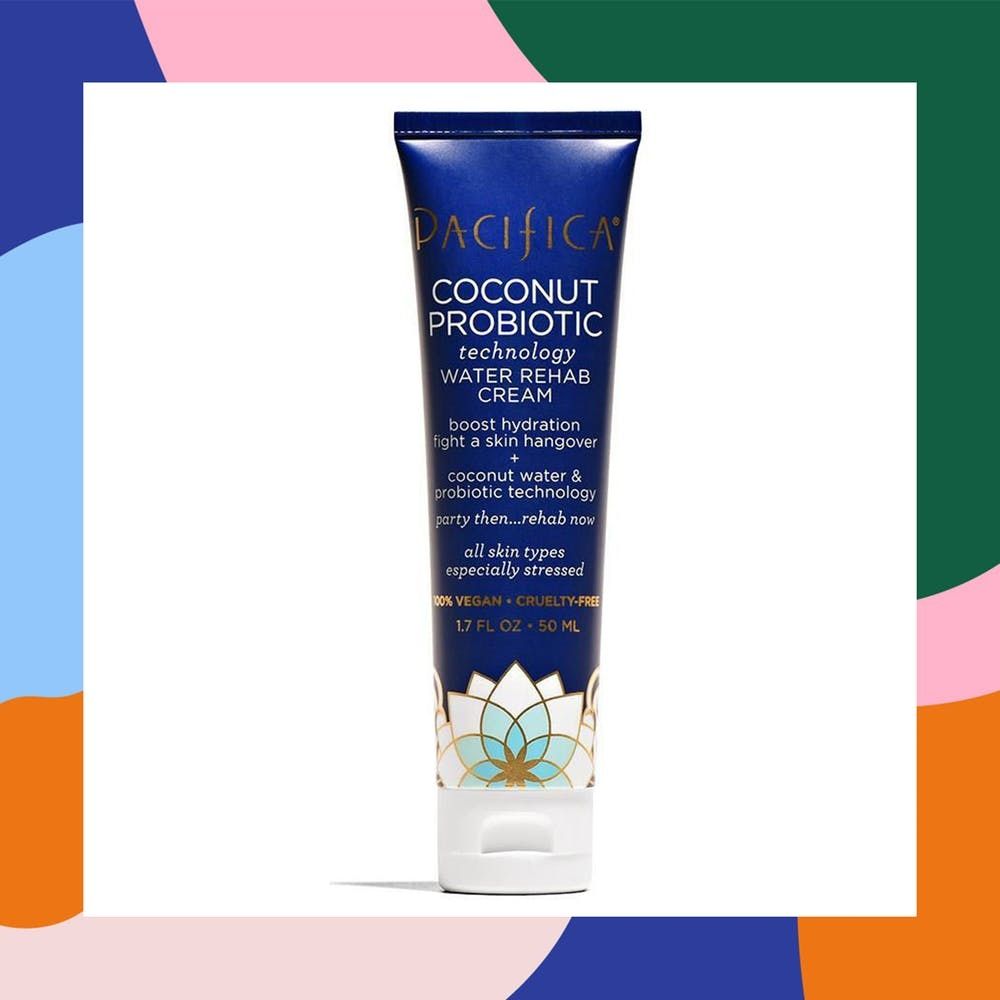Over the past few months you may have noticed a surge of skincare products labeled with probiotics on the ingredient list. What once was only associated with yogurt and supplements is now proving to be a staple — or, at the very least, a trend — for clear, healthy complexions. To determine whether or not probiotics are the be-all, end-all for a well-rounded skincare routine, let’s first discuss what they are and how they work. With help from a couple of dermatologists, we dive into that and more, below.
What Are Probiotics?
Long story short, probiotics are live bacteria and yeasts that live on your skin and in your digestive system. They help maintain diversity in the microbiome, which is necessary for a healthy, strong skin barrier that’s less likely to succumb to the growth of disease-causing bacteria. (Photo via Aliseenko/ Getty)
How Do Probiotics promote healthy Skin?
While the idea of a complexion swarming with bacteria may make you queasy, the microorganisms help prevent infection, inflammation, and even acne, according to Calabasas, California-based board-certified dermatologist Anna Guanche. Since our naturally-occurring probiotics aren’t always plentiful (thanks to over-washing and using antibacterial sanitizers), incorporating beauty supplements or skincare products infused with the good bacteria can help fill the gap. Whether applied or ingested, these microbes increase moisture retention, help maintain a healthy skin pH balance, provide nutrients to the biome, and assist with optimal functioning overall, says Guanche. (Photo via Runstudio/ Getty)
Does everyone benefit from probiotics?
Probiotics are beneficial for all skin types, however, according to a 2015 article published in the International Journal of Women’s Dermatology, they work especially well for acne-prone complexions. Since most topical acne regimens cause dryness and irritation, the good bacteria saves the day (not to mention your skin barrier) by helping to maintain moisture while preventing future irritation and blemishes.
They can also help ease eczema. By applying probiotics regularly, you’ll be able to balance your microbiome’s healthy skin flora, which in the end impacts not only how your skin looks, but how it feels too. And, in the case of eczema, that means a whole lot less itchy and red. (Photo via jacoblund/ Getty)
What Are the Best Probiotics for Your Complexion?
As you can imagine, there are lots of different types of probiotics, so it’s always helpful to know which to look out for on labels. Board-certified dermatologist and director of New York Laser & Skin Care Arielle Kauvar recommends strands of lactobacillus (AKA lactic acid) or bifidobacterium, as they’re the most popular and most effective on the market. Where lactobacillus is well known for its anti-aging, skin-smoothing properties, bifidobacterium is key for strengthening the immune system. (Photo via Youngoldman/ Getty)
which Probiotic beauty products should I add to My Skincare Routine?
If you’d like to test the good bacteria out for yourself, keep scrolling for probiotic-rich skincare products to add to your routine.
1. Pacifica Coconut Probiotic Water Rehab Cream ($16): Vegan probiotic technology combines with plant extracts and coconut water to rehab tired skin and deliver a radiant glow.
2. O’o Hawaii birdsong EYE REMEDY ($85): This antioxidant-rich peptide, probiotic, and coffee seed extract eye cream works to lift, brighten, and smooth tired under-eyes.
3. HydroPeptide HydraFlora Probiotic Toner Essence ($68): Formulated with both pre- and probiotics, this coconut water and blue agave toner strengthens and resets skin, as well as protects it against future free radical damage.
4. H2O+ Beauty Rapids Soothing Probiotic Bubble Mask ($6): This fizzy face mask takes just 10 minutes to calm and nourish skin with a blend of probiotics, champagne, and yuzu extract.
5. Naturopathica Kombucha Bio-Cellulose Mask ($36): Nourish your microbiome, balance pH levels, and strengthen your skin all around with this probiotic-rich kombucha face mask.
6. Mother Dirt AO+ MIST ($50): Spritz skin with this live probiotic spray to improve clarity and texture, as well as reduce oiliness, in four weeks.
7. Tula Pro-Glycolic 10% pH Resurfacing Gel ($34): Committing to this product for four weeks (and beyond) will help leave skin looking and feeling smoother.
8. Biossance Squalane + Probiotic Gel Moisturizer ($52): Deeply hydrate skin with this probiotic-boosted moisturizer that’s designed to reduce redness and promote even texture.
9. Saturday Skin Bright Potion Probiotic Power Serum ($51): Probiotics and prebiotics work together, along with niacinamide and sea buckthorn berry, to encourage smooth, radiant skin that looks healthy and youthful.
10. AmorePacific Treatment Enzyme Peel Cleansing Powder ($60): This powder-to-foam cleanser is powered by plant-derived probiotics and enzymes to remove the build-up of impurities, refine pores, and deeply moisturize skin.
RELATED: Every Major Beauty Brand That’s Getting a Clean Makeover in 2019
Brit + Co may at times use affiliate links to promote products sold by others, but always offers genuine editorial recommendations.
